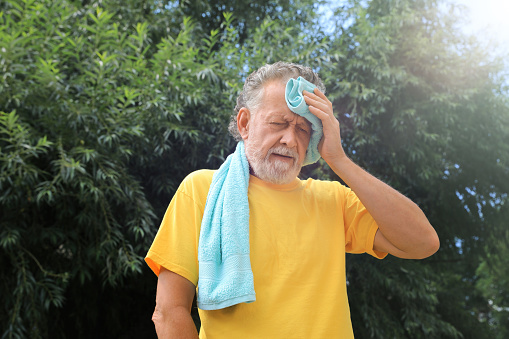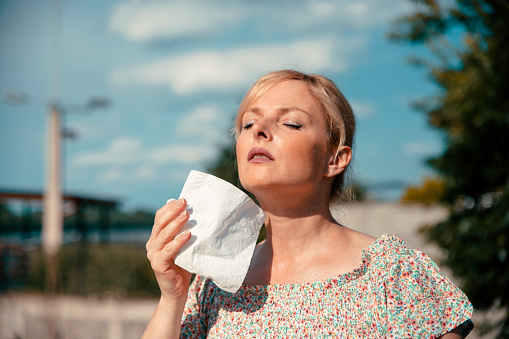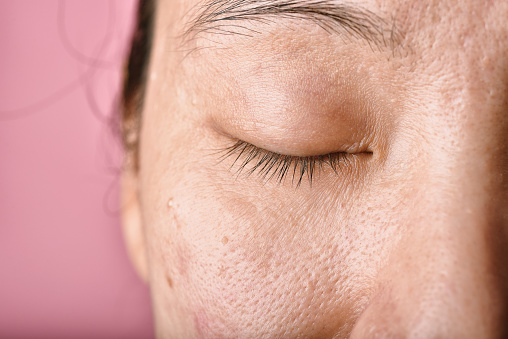Do you often feel tired and sluggish? Do you have a headache or a dry mouth? You may be dehydrated. Dehydration is a condition that occurs when the body doesn’t have enough water to function properly. It can cause a wide variety of symptoms, which range from mild to severe. In this blog post, we will discuss 10 dehydration symptoms that you should be aware of. If you experience any of these symptoms, it’s important to drink plenty of fluids and see your doctor.

10 Dehydration Symptoms
Dehydration symptoms include:
- Feeling thirsty
- Dry mouth
- Feeling tired or fatigued
- Headaches
- Having dark-colored urine
- Urinating less often than usual
- Constipation
- Dizziness
- Having dry skin
- Muscle cramps
1) Feeling Thirsty
Dehydration occurs when your body does not have enough fluid to function properly. Symptoms of dehydration include feeling thirsty, tired, or lightheaded. If you are dehydrated, it is important to drink plenty of fluids and seek medical attention if your symptoms are severe.
2) Dry Mouth
When your body doesn’t have enough water, it starts to send out signs that you need to drink more. Dry mouth is one of these signs. When your mouth is dry, it can make it hard to swallow, speak, or even wear dentures. In severe dehydration, you may also get a sore throat or cracked lips. It’s important to drink before you get thirsty and to keep drinking fluids throughout the day.
3) Feeling Tired Or Fatigued
Feeling tired or fatigued is also a common symptom of moderate dehydration. When you are dehydrated, your body does not have enough water to function properly. This can lead to feelings of fatigue, as well as other symptoms such as headaches, dizziness, and lightheadedness.

4) Headaches
Most people know that headaches can be caused by mild dehydration, but they may not know how or why this happens. When the body doesn’t have enough water, it begins to function less efficiently. This can lead to a build-up of toxins in the blood, which can then cause headaches and low blood pressure. Dehydration can also cause the blood vessels to constrict, leading to increased pressure and pain. In severe cases, dehydration can also lead to seizures. So next time you have a headache, reach for a glass of water instead of a bottle of aspirin.
5) Having Dark-Colored Urine
If your urine is a dark yellow or brownish color, it may be a sign of dehydration. This is because when we are properly hydrated, our urine is typically a light yellow color. The darker the urine, the more concentrated it is. Concentrated urine can occur when we are not drinking enough fluids or if we have been sweating a lot. If you notice that your urine is dark, it is important to drink plenty of fluids to prevent dehydration.
6) Urinating Less Often Than Usual
Did you know that one of the earliest signs of dehydration is actually a decrease in the frequency of urination? That’s because when your body is dehydrated, it conserves water by reducing urine production. So if you find that you’re urinating less often than usual, it’s a good idea to have more fluid intake, especially if you’re also experiencing other symptoms of dehydration such as fatigue, headache, or dry mouth.
7) Constipation
Constipation is a common digestive issue that can cause abdominal pain, bloating, and difficulty passing stool. Though it can have many causes, one of the most common is dehydration. When the body doesn’t have enough fluids, it begins to absorb water from the intestine, making stool harder and harder to pass. In addition, dehydration can also lead to slowed gastrointestinal motility, which further contributes to constipation.
Drinking plenty of water and other fluids helps to keep the intestines hydrated and encourages normal bowel movements.
8) Dizziness
When you feel dizzy, it’s usually because your body is not getting enough fluids. Dehydration can cause your blood pressure to drop, and your brain may not be getting enough oxygen. When this happens, you may feel lightheaded, dizzy, or even faint. If you are feeling dizzy, it is important to drink plenty of fluids and consult with your doctor to rule out any underlying medical conditions.
9) Having Dry Skin
Many people don’t realize that dry skin is often a symptom of dehydration. When the body is lacking in fluids, it begins to conserve water by producing less sebum, the oily substance that helps to keep skin supple and hydrated. As a result, the skin becomes dry, cracked, and more susceptible to irritation.

10) Muscle Cramps
While muscle cramps can be caused by a variety of factors, such as overexertion or low levels of electrolytes, one of the most common causes is dehydration. When our bodies are lacking fluids, the muscles can’t function properly and begin to cramp up. So next time you feel a muscle cramp coming on, reach for a glass of water instead of a bottle of painkillers. Chances are it will do the trick!
Risk Factors
Dehydration is a serious condition that can occur when the body loses more fluids than it takes in. While dehydration can happen to anyone, there are certain risk factors that can make it more likely to occur. For instance, older adults are more at risk for dehydration because they often have chronic medical conditions that can cause dehydration, such as diabetes.
Additionally, people who are very active or who live in hot climates are also at a higher risk for dehydration. It is important to drink plenty of fluids and to avoid activities that will cause you to sweat excessively if you are at risk for dehydration.
How To Stay Hydrated
Staying hydrated is important for overall health and well-being, but it can be especially important during exercise or in hot weather. The body sweats to cool itself and this can lead to dehydration, so it’s important to replace the fluids that are lost.
- The best way to stay hydrated is to drink water regularly throughout the day, even when you’re not thirsty.
- You can also eat foods that contain water, such as fruits and vegetables.
- Watermelon, cucumbers, and tomatoes are all excellent choices.
- Make sure to drink plenty of fluids before and during exercise.
- Sports drinks can also help to replenish electrolytes, but water should be the mainstay of hydration.
- Coffee and tea count towards your daily water intake as well.
- Be sure to limit your intake of sugary drinks, as they can actually cause dehydration.
By following these simple tips, you can make sure you’re getting the fluids your body needs to stay healthy and function at its best.
The Ending Note
Dehydration is a common condition that can lead to a variety of symptoms, including constipation, dizziness, and dry skin. There are certain risk factors for dehydration, such as older age or living in a hot climate. The best way to stay hydrated is to drink water regularly throughout the day and to eat foods that contain water.
Related Posts:



